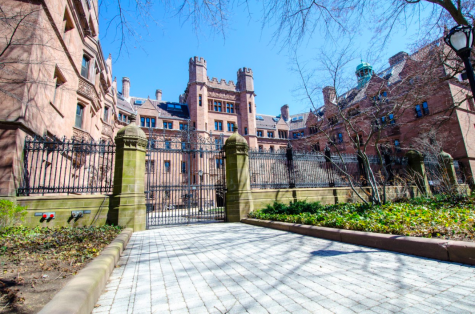How to Have a Better Summer: Don’t Volunteer
As summer rolls around, an influx of well-meaning teenagers takes off to whatever Third World country is in vogue this year to volunteer. The students usually stay for two or three weeks, and often work in schools or with animals. This combination of traveling and volunteering, dubbed “voluntourism,” is often more harmful than helpful to those it attempts to aid, and is a wholly misguided effort in charity.
Voluntourism takes work opportunities from locals who need a job in exchange for the work of inexperienced teenagers. Travel money would be better spent to pay a local and more experienced worker. Nishad Das, director of Global Education at Groton, agrees. He asks: “Why are we providing people in Africa and South America with what is probably the worst skilled labor in the world? Aren’t we denying the laborers of these countries a livelihood by doing their work?” If money spent voluntouring were put into the hands of local workers, any possible benefits of voluntourism would extend much further – money in the hands of locals rather than travel companies would stimulate the local economy and employ out-of-work locals to do work that might otherwise be fumbled by teenagers.
The economic faults of voluntourism are numerous, and the morality of voluntourism also resides in a gray area. A blog run by UNICEF Cambodia volunteer Jemma Somervail rightly says that popular volunteering sites, such as orphanages or schools, are emphatically not tourist sites; orphans and underprivileged schoolchildren are not spectacles to be pitied and saved. This misguided savior complex pervades many service trips. For our part, Mr. Das reassures that Global Education Opportunities (GEOs) strive not to “build character off the backs off our hosts.” And that is as it should be – volunteering should not be at the expense of those one is trying to help. Voluntourists would do well to remember that their hosts are people, not character-building opportunities.
The photos and social media posts that follow these trips speak for themselves. They imply that volunteer work is something to be checked off a list – build a house, take a picture for Instagram, go back to the States. To these volunteers, the real work is only two or three weeks. I hear you ask: what real work can be done in three weeks? The answer: not much.
Mr. Das agrees: “Isn’t it arrogant and paternalistic to believe that by traveling to these countries for a three week period with little or no knowledge of how these societies live that we can find solutions for sustainable growth and for businesses in their communities?” These are the sorts of questions that need to be asked more often.
And that is the heart of the problem: voluntourism allows the volunteers to escape the problems of indigent communities and assuage their consciences without making any real, sustainable progress. No lives will be saved and no well-structured schools will be built because of a few measly hours someone volunteered over the course of their two- or three-week vacation.
However, this is not to say that voluntourists are not well-meaning nor that all international volunteering is bad. Groton GEOs, for example, have taken steps to distance themselves from voluntourism. GEOs seek to “travel with humility and to learn,” while also focusing on being “centered around attitudes towards other cultures, our ability to respect cultural otherness and recognize that people in different cultures live their lives differently,” says Mr. Das. They promote cultural learning and exchanging, in place of shoddy and self-righteous service. Other international organizations, such as Doctors Without Borders or the Peace Corps, employ long-term help from professionals instead of short-term help from unskilled teens. These organizations should be respected; the voluntourism industry should not. There is nothing wrong with wanting to travel or volunteer, but the numerous problems that lie within the voluntourism industry deem it a poor way to spend a summer.










